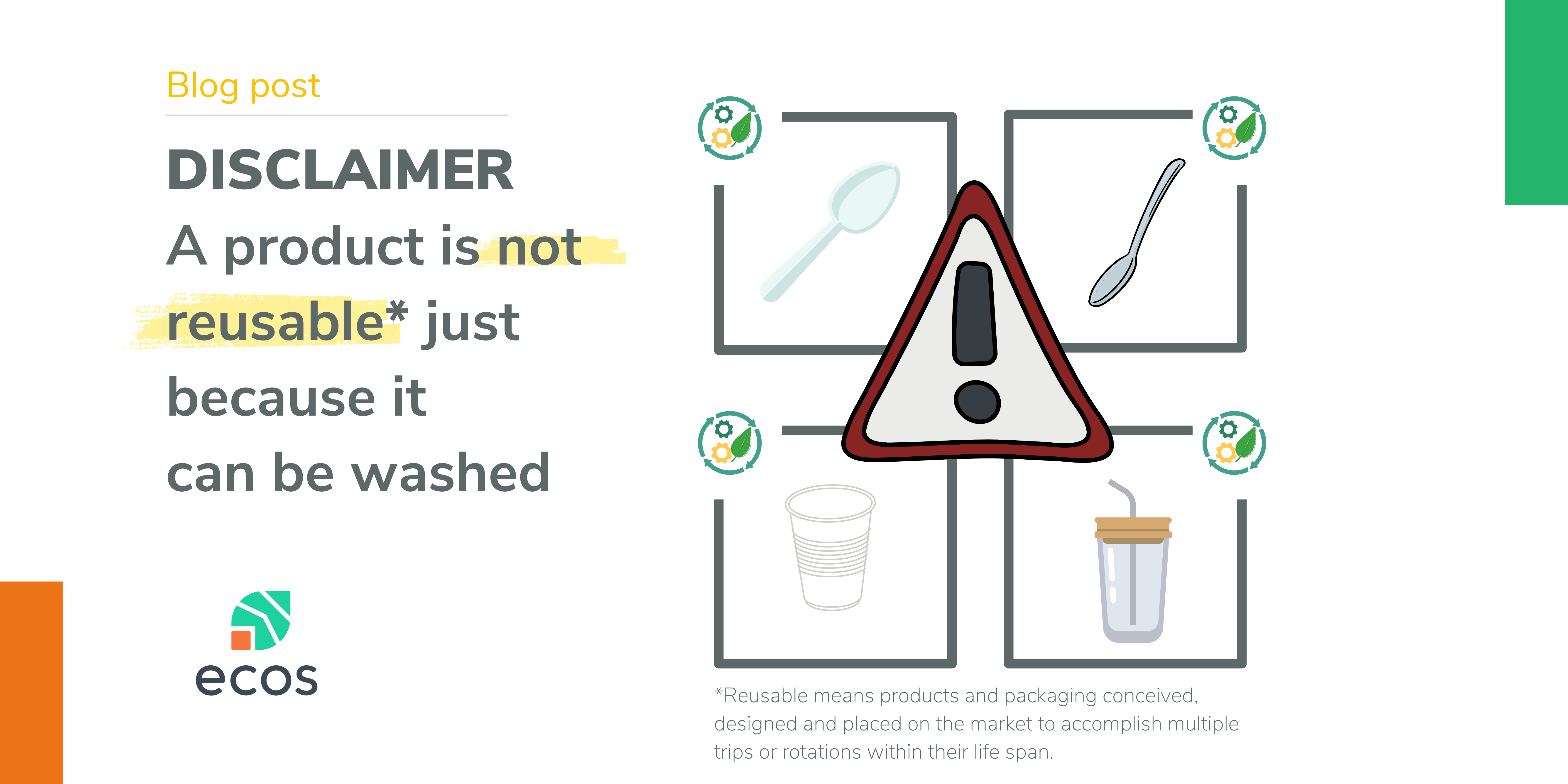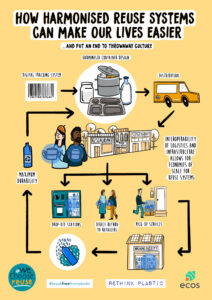Disclaimer: A product is not reusable just because it can be washed
A new standard is on the cards: plastic tableware that can be washed more than five times in a dishwasher might be redefined as reusable by European standardisers. Aiming at such short rotation and without a proper reuse system in place, however, these are simply single-use plastic products, which today are banned by the Single-use Plastics Directive. Greenwashing in the making?

On 22 January, the European Standardisation Committee on Plastics approved a new work item proposal on reusable plastic tableware. The proposal targets plastic plates, glasses, cutlery, dishes, cups, bowls – in short, most single-use plastic products restricted or banned by the European Single-Use Plastics (SUP) Directive. The work item was introduced by the Spanish Standardisation Committee (UNE) as a way to convert an existing Spanish standard to a European one.
Robust standards are essential to enable a circular economy. But this new proposal could open the door to greenwashing, which is why we believe it is time to sound the alarm.
Washable, yes! But still bad for the environment and our health
The standard in question is formally known as UNE 53928:2020 on ‘Plastics – Reusable plastic tableware for food use’. It regulates product labelling which indicates the minimum number of dishwashing cycles the product should withstand. In other words, it measures the expected functional life of the plastic spoons and cups – but does not take any other reuse criteria into account.
Why is this suggestion problematic? With this proposal, plastic tableware will be considered reusable as long as it can be washed at least five times. The number of wash cycles seems arbitrary. Other criteria such as material composition or reparability are left aside in the standard. Whether consumers typically perceive and use a product as reusable is not considered either, not to mention that the existence of an operational reuse system is the main driver for ensuring structural reuse of products.
However, the SUP Directive is very clear, and bans single-use plastic cutlery and plates. If developed, the standard would also contradict the European Packaging and Packaging Waste Regulation (PPWR) proposal, which states that packaging can be considered reusable if “it has been conceived and designed to accomplish as many trips or rotations as possible in normally predictable conditions of use”.
The new standard would effectively allow to label single-use plastic as reusable, in practice going against both EU laws.

Reusable instead of disposable – the EU’s approach to single-use plastic
Since July 2021, the EU has been rolling out the measures on single-use plastics imposed by the SUP Directive. Restrictions on plastic packaging and tableware are almost universal across the EU. According to the new packaging law in Germany, reusable packaging will be mandatory for the catering industry from 2023. Luxembourg has adopted a ban on SUP packaging for fresh fruits and vegetables as of 1 January 2023. Portugal also adopted a similar law as of 1 July 2023.
The new proposed standard would go against this trend, and, frankly, common sense, which is why its development must stop. Instead, we propose standardisation efforts to focus on reusable packaging and framework conditions to mainstream reuse systems, in light of the developments in EU legislation. A significant opportunity for the scaling up of reusable containers lies in standardising reusable packaging formats and systems, allowing business operators to use (and reuse) containers for their products. The European Commission must act, and immediately establish an open dialogue with standardisers.
Where sustainable and reusable alternatives are easily available and affordable, single-use plastic products cannot be placed on the markets of the EU Member States. Do sustainable alternatives already exist?
Fortunately, yes, with a great number of encouraging good practices readily available. To name just a couple:
- In Vienna, Austria, when customers order takeaway food from a restaurant that is a Skoonu partner, the food is delivered in sustainable, reusable tableware instead of disposable packaging.
- In Vilnius, Lithuania, the city adopted a municipal ban on single-use plastic catering products (such as cups and tableware) for all municipal public events, as well as the requirement to provide separate collection containers.
We urgently need standards to harmonise reusable packaging formats and systems, to lever a scale-up of reuse systems – and not to serve greenwashing of single-use products.

 By
By  By
By 
